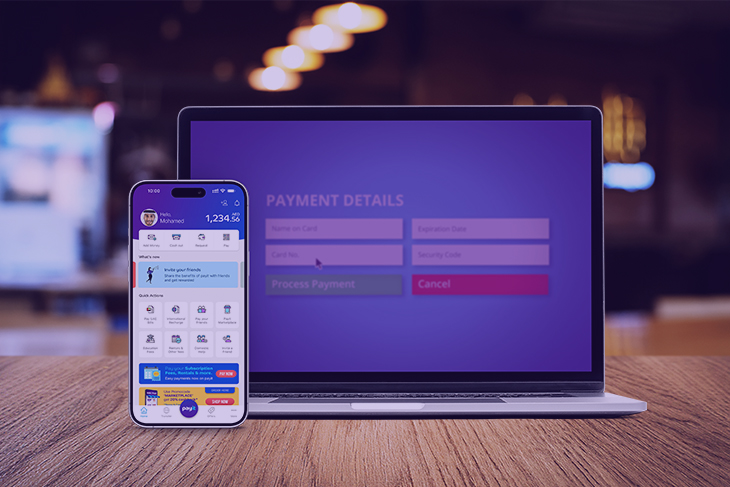Home » Cashless Payments Knowledge Hub » Mobile Wallets Vs Digital Banking: What’s the Difference?

High-end digital solutions such as digital banks and mobile wallets have become more prevalent in the modern period, and more people are using them to send and receive money.
Mobile wallets and digital banking are increasingly popular digital payment methods as the nation transitions to a cashless, highly digitalized economy.
Additionally, both are frequently used as synonyms. Although they relate to financial transactions conducted online, they are implemented differently.
Let’s dive deeper into understanding what exactly is digital banking and mobile wallets along with the key differences between them.
A mobile wallet is your electronic wallet that stores your cash in a digital wallet in an app on your phone. You can transfer money to a mobile wallet online or by linking your mobile device with your credit or debit card details .

You can pay with your smartphone, tablet, or smartwatch instead of a traditional credit card while making transactions. To add funds to a digital wallet, an individual’s account must be connected to it.
Additional Reads:
In other words, A mobile wallet is integrated into your smartphone application, unlike conventional wallets. Therefore, those who prefer not to carry a real wallet when making in-store transactions use these wallets.
With a mobile wallet app like Payit, you can easily do anything from grocery shopping, making travel arrangements, transferring money, and much more.
The foundation of digital banks is consumers’ ability to do most of their banking activities online. Transactions using digital banks can be completed efficiently and swiftly through a phone application or the bank’s official website rather than visiting a branch or office.
Since the introduction of the net banking option, practically any financial transaction may now be completed online in a few easy steps. The idea of digital banking is one of the most practical and safest ways to utilize digital technology, from paying your utility bills to buying tickets for movies, and flights, money transfers from one bank account to another, and so much more.
Most top banks have launched their corresponding net banking applications to provide customers with a flawless experience in response to the constantly growing demand for digital banking and its practical applications.
Also, read UAE’s Digital Payment Trends to Look for in 2023.
So, let’s find out the key differences between a mobile wallet and a digital banking app.
| Key Differences | Mobile Wallet | Digital Banking |
| Account Linking | With any bank’s account or debit/credit cards | With the same bank’s digital banking app |
| Access to Banking Services | Limited access (online payments and receipts) | Most banking services and products |
| Offer | More offers, promo codes, and cashback deals | Fewer offers and deals |
You may top up your phone credit, pay bills (such as those for energy, water, and internet), and settle online transactions using digital banks and mobile wallets. Both products can be utilized in place of cash.
Here are the crucial differences between digital banking and mobile wallets:
You can link any bank account or credit/debit card of any bank with your mobile wallet app since it is a third-party service provider.
On the other hand, to use digital banking, you must have a bank account with the bank whose digital banking app you want to use.
Mobile wallets can only be used for online payments and transactions. In addition, as previously noted, various financial services and products are not offered via mobile wallets.
However, most digital banks offer various banking services, including loan products, savings accounts, money transfers, and receiving. But unlike traditional banks, you can complete most of these services and products associated transactions online via a website or a mobile application.
Compared to digital banks, mobile wallets have a more comprehensive range of offers that users can choose from for each financial transaction, including lucrative cashback offers and others.
The provision of financial services via digital channels, such as internet banking, mobile banking, and ATMs, is called “digital banking.” A whole range of banking services, including account opening, fund transfers, bill payment, and loan applications, are offered by digital banks, such as online-only banks.
On the other side, mobile wallets are electronic wallet services that let you use a mobile app to store and manage your digital assets, including money, points from loyalty programs, and your digital identity. In addition, limited banking services, like peer-to-peer payments, bill payments, and in-store transactions, are frequently offered via mobile wallets.
In conclusion, mobile wallets concentrate on making payments and keeping digital assets. In contrast, digital banking offers a comprehensive range of banking services.
Get the latest offers, cashback deals, and promo codes with online bill payments and money transfers. Download Payit mobile wallet app on your phone.
